
October 2023 saw the release of ‘Innerstanding,’ a studio-album by Dhani Harrison, son of George, and if you’re interested in checking out lyrics for occult/conspiratorial references and/or clues in Beatles recordings whether from their time as a working band, their solo years or from their offspring, then Innerstanding is perhaps worth a look, such as the lyrical content of the song ‘New Religion’:
Scream me the news
Sounds like some bullshit, don’t speak too soon
You’ll go and say something stupid
Reds and the blues
Pretending, they’re different when they are all in cahoots
And it’s just one crooked system
We don’t eat your food, we’re sick of the water
Stop this abuse, plastic and poison
Your head’s in the noose but you’re still chasing the pharma
Oh, please deliver me lord from mega-tech and the coroner
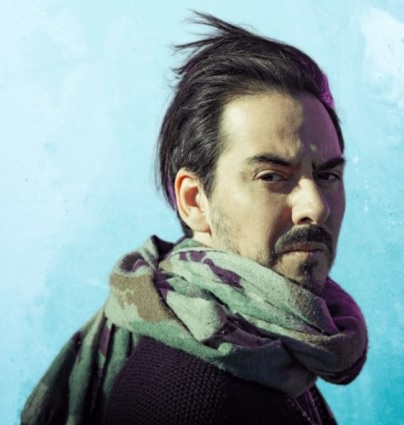
I ain’t gonna dance for a new religion
I ain’t gonna dance for a new religion
I ain’t gonna dance for a new religion
I ain’t gonna dance for a new religion
I ain’t gonna dance for a new religion
I ain’t gonna dance for a new religion
I ain’t gonna dance for a new religion
I ain’t gonna dance for a new religion
I ain’t gonna dance for a new religion
I ain’t gonna dance for a new religion
I ain’t gonna dance for a new religion
So how you gonna’ last in this new condition?
Don’t suffer fools, my brothers and sisters
There’s no time to lose, society left us
Love is the tool, raise the vibration
‘Cause when you live in the love it’s called a civilisation
I ain’t gonna dance for a new religion
I ain’t gonna dance for a new religion
I ain’t gonna dance for a new religion
I ain’t gonna dance for a new religion
I ain’t gonna dance for a new religion
I ain’t gonna dance for a new religion
I ain’t gonna dance for a new religion
So how you gonna’ last in this new condition?
I ain’t gonna dance for a new religion
I ain’t gonna dance for a new religion
I ain’t gonna dance for a new religion
Then there’s ‘The Dancing Tree’:
Welcome to the underworld, thoughts are taken and mind controlled
Eyes are still dirty from all you saw
‘Cause you doom-scrolled ’til your thumbs were raw
No polite way of sayin’ this when
There’s plastic bags sealed around their necks
Anger burning across their eyes
‘Cause they did the dance just to stay in line
I don’t care what you think you know, Y’ top hats full of alcohol
Fakery and a shaky hand, Gibson, Vespa, Ampersand
Pretending all the way they saved the place
While addicted to the kick-back pharma pay
Waiting for the cult to rue the day
Just waiting for the cult to rue the day
Something in the way their motives stray
Nothing like an island escapade
Waiting for the cut to rue the day
Someone better take their toys away
Justice isn’t working, all the pigs they’re running
Answers come-a-knockin’, now fear is something foreign
You fuckin’ nuisance, think you’re above us, you’re bloody lucky
You roll with body doubles
The days have been uncertain, pain has hit too often, now is the time
To emancipate the sovereigns, mass formation, became psychotic
Between the politicians, doctors and the prophet
I know the difference, it’s worth a mention
Our situation is gonna need attention
For the rejection of a system that’s moronic
To help the people that are starvin’ for some lovin’
All the horrors that you faced just for nothing
All the horrors that you faced just for nothing
All the horrors that you faced just for nothing
All the horrors that you faced just for nothing
So what has been your dream in the midst of things?
I hold you in my loving arms as you sleep and scream
Try to reach your heart while you’re judging me
Doesn’t matter anymore like it did last week
Beneath the dancing tree there is a bird who sings
Waiting there, he has gone and told me everything
About the people who were starving for some lovin’
And all the horrors that they faced, just for nothing
All the people who were starving for some lovin’
And all the horrors that they faced just for nothing
All the people who were starving for some lovin’
And all the horrors that they faced just for nothing
All the people who were starving for some lovin’
And all the horrors that they faced just for nothing
All the people who were starving for some lovin’
And all the horrors that they faced just for nothing
Underneath, underneath of the dancing tree
Underneath, underneath of the dancing tree
Underneath, underneath of the dancing tree
Underneath, underneath of the dancing tree
I have very little inkling as to the message (if any) Dhani is communicating to us there, but, it’s mired in darkness according to my eyes what with its mention of ‘mind controlling,’ “the underworld,” and “horrors that they faced.” However, most intriguing of all, for me, is when he sings, “you roll with the body doubles.” Would I be presumptuous to assume this is some reference to ‘Paul is Dead’?(!). Really? And if it is, then who is the “you” he’s referring to about this? Anyone in particular?
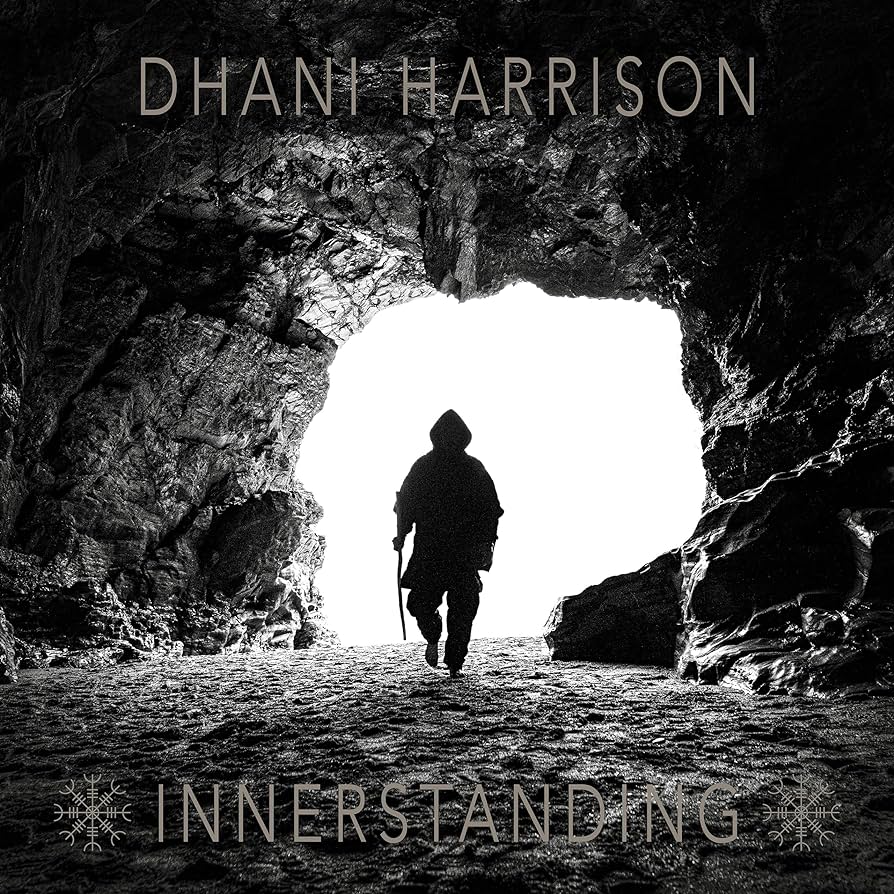
As intrigued by that as I am though, that’s an avenue of enquiry for another article perhaps, some other time, because my main focus here is on the connections that I’ve collected together on noticing the sound-sample of the man who’s speaking loudly whilst the song’s intro works its way into existence. It’s the voice of actor Patrick McGoohan from an episode of ‘The Prisoner,’ a 1960s TV mini-series that you might well indeed be aware of, in which he stars as its main character, referred to throughout it as ‘Number 6.’
The Prisoner is a mixture of action adventure, science fiction, psychological drama, and thriller, and more than a sprinkling of surrealism and it’s steeped in allegory and also esoteric meanings that have been open to all manner of interpretation depending on who’s watching it. For his part, McGoohan, who was also a co-writer, director, and the producer of the series, is reported to have said that he wrote it with an Orwellian world in his mind. It follows the exploits and challenges of the protagonist as he attempts to escape from a secret, coastal location he’s been forcefully abducted to known as “the Village” after having resigned from, it’s said, his post as a Top Secret employee – an intelligence agent most likely, although this isn’t exactly spelt out as such in the series itself.

In the introductory opening sequences of almost every episode of the show we see the events leading up to this abduction, the cause of it, as he drives to an underground location just yards from London’s Houses of Parliament, storms into an office and slams down on its table a letter (of resignation, I presume, although it’s never actually stated). He then returns home, then vapour hisses through the front-door keyhole and he passes out, awaking to find himself in the Village, an idyllic-looking seaside location one might think from the look of it…
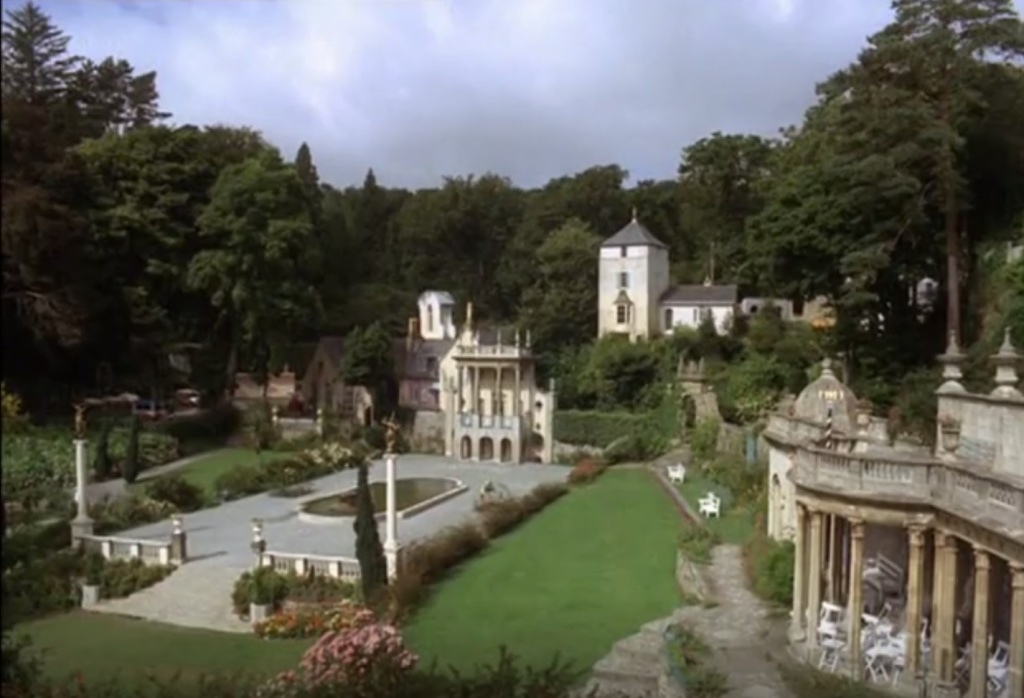
There are home comforts included for him as well… abducted he might have been but he’s provided with a comfortable house all for himself – but this picture-postcard coastal locale is under the close eye of surveillance cameras and monitors watching his and all the other residents’ every move, whether they’re out and about or inside their homes and they are not permitted to leave this place. They are prisoners without the bars, and they are all known by their own designated number.
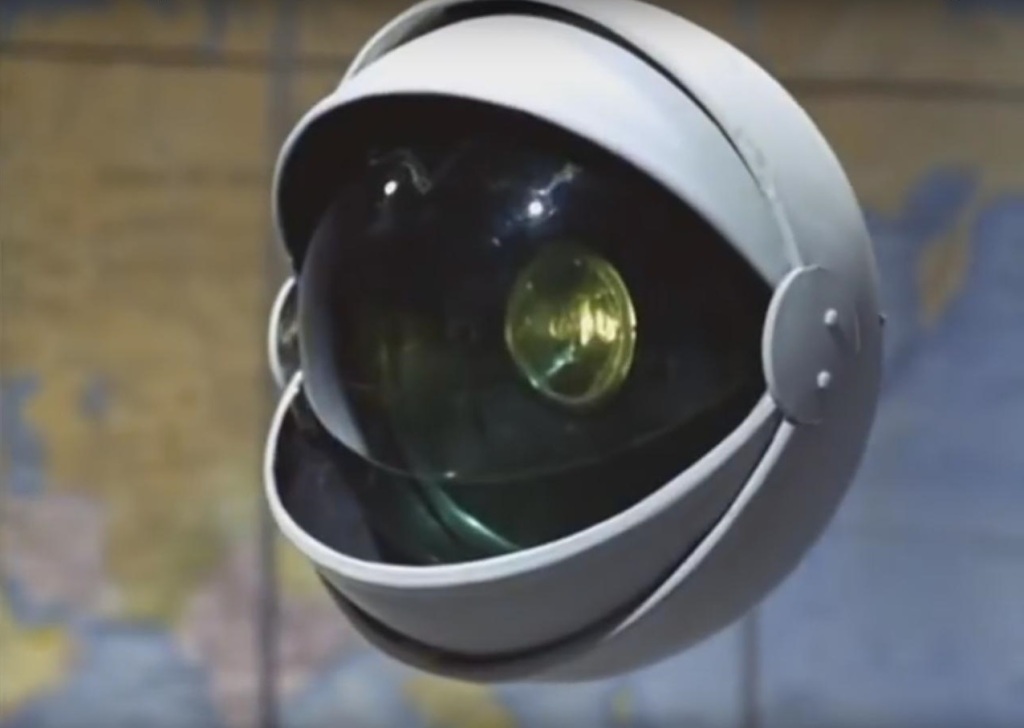
McGoohan’s character, the aforementioned Number 6, refuses to acquiesce to this identity. In almost every opening intro of the 17 episodes we hear him protest, “I am not a number! I am a free man!” In the first instalment, titled ‘Arrival,’ he tells his captors that “I will not be pushed, filed, stamped, indexed, briefed, debriefed, or numbered! My life is my own.” But this falls on deaf ears and so his battle to escape his enforced surroundings escalate. His fellow residents on the other hand, in the main, go about their daily lives with no complaint, taking in the comforts of this picturesque location such as its beach, cafes, and shops and have no concept of challenging their incarceration. They are, what you might term, ‘sheeple.’ Then there are others who have no willingness to question it even if they are aware of their soft imprisonment. As one Villager – Number 240 – says to Number 6, “questions are a burden to others. Answers are prison for oneself.”
McGoohan is reported to have said of The Prisoner in 1983 that “I wrote it with ‘1984’ in mind and we’re getting closer to the world of those numbers all the time.” He’s quoted as saying in an interview in 1969, some two years or so after the series was first screened, “it’s ‘Brave New World’ stuff. Nobody has a name, everyone wears a number. It’s a reflection of the pressure on all of us to be numbered, to give up our individualism.” The Prisoner, he said, is “an idea that’s always been with me. The survival of the individual, really. Of individuality… To avoid the overall blandness of the mass. Not to be one of a mass.” First aired in September 1967 in the UK, it was a ratings hit and amongst its millions of fans were the Beatles, so I’m led to understand – Ringo is reported to have said so and Dhani is quoted as saying that his father, and Starr, and Lennon and McCartney “were going to do (a) movie… based on The Prisoner. They were going to be in a movie written and directed by Patrick McGoohan in the same vein as The Prisoner, because they thought it was one of the best series ever. They were so into his psychedelic weirdness.” Well, indeed, there’d been full-length feature movies starring the Beatles before, there was ‘A Hard Day’s Night’ (1964), and ‘Help!’ (1965) which both essentially capitalised on the band’s lovable ‘mop-top’ media-image, but, George said decades later, “in the time that had elapsed since A Hard Day’s Night and Help! – although it was probably only two tears – it was if we’d gone through five hundred years mentally. We didn’t see any way of making a similar film of four jolly lads nipping around singing catchy little tunes. It had to be something that had more meaning. I remember we had Patrick McGoohan around, and he’d written a couple of episodes of a series called The Prisoner, which we liked very much. We thought, ‘well, maybe he could write something for us.’” The Beatles’ trusted Press Officer, Derek Taylor, stated as much in his book, ‘It Was Twenty Years Ago Today,’ stating, “The Prisoner… a wonderfully baffling, cleverly filmed, totally menacing allegory… The Beatles met McGoohan by arrangement with a view to doing something together. It never actually happened, but that was often the case.”
This Village of no escape, with its own currency, newspaper, a hospital, and graveyard, is under the managerial eye of its chief administrator, Number 2. This is an ever-changing post, in almost every instalment of The Prisoner, a different person holds the position, and in the episode ‘Free for All,’ Number 6 is persuaded to stand as a candidate for the role only to discover, as he’d suspected from the off, that he was set up for a fall, it turns out to be a sham (aren’t all elections, you might ask?).
In the 2000s and 2010s, Dhani recorded a number of releases with his band, Thenewno2, the name of the group reported to have been inspired by The Prisoner. According to the photo below from his FaceBook page, it wasn’t his father George who introduced him to the series, as you might have assumed (I certainly did), it was Jools Holland, musician and television/radio-presenter and who’s collaborated musically with the two Harrison men and who’s a big fan of the show as well, so much so that the inspiration for the design of his recording-complex, ‘Helicon Mountain,’ was based on the unique architecture of the Village.

Jools standing outside his Village-inspired ‘Helicon Mountain’ studios in South London:
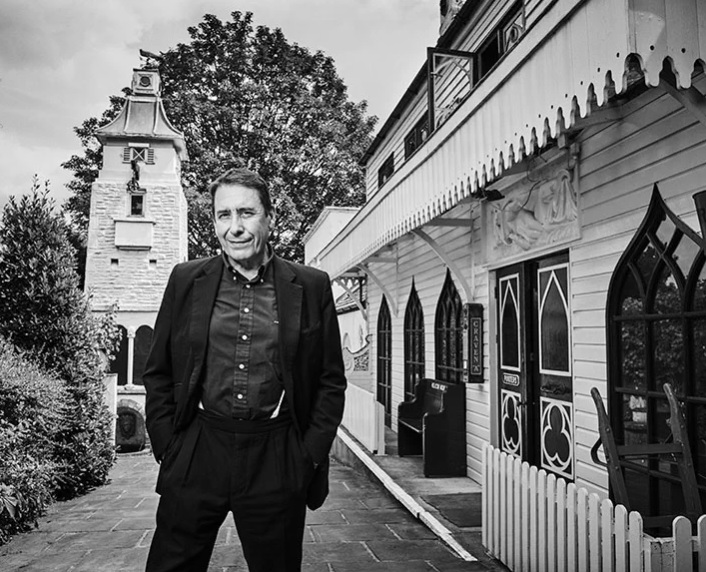
A couple of the Number 2s in The Prisoner had starred in the previously-mentioned Help! movie… There was actor Patrick Cargill who, in the film, played the role of the Superintendent of the HQ of Greater London’s police, Scotland Yard…

Help! is a musical-comedy-adventure caper that follows John, Paul, George and Ringo around the world as they attempt to escape from a murderous eastern religious cult led by Clang, played by actor and Number 2, Leo McKern…

“Who is Number 1?” asks Number 6, not discovering the answer to that until the final instalment. McKern’s Number 2 tells him that it makes no difference to him personally who it is, but what the Village leadership do want to know from their captive is why he resigned… Did he jump over to the ‘other side,’ is that what it was due to? What with The Prisoner being written and filmed during the era of the so-called ‘Cold War,’ the TV viewer might perceive this to be referring to ‘East versus West,’ especially, perhaps, because mention is made during the series that the Village residents have been incarcerated there because they are privy to Top Secret information, information that is too valuable for the ‘other side’ to grab hold of. But this too, same as the earlier-mentioned elections, means very little really. As Number 2 informs 6 in the episode ‘The Chimes of Big Ben,’ the aim is for, he hopes, a one world order:
No. 6: Has it ever occurred to you that you’re just as much a prisoner as I am?
No. 2: My dear chap, of course, I know too much – we’re both lifers. I am definitely an optimist that’s why it doesn’t matter who Number 1 is. It doesn’t matter which side runs the Village.
No. 6: It’s run by one side or the other.
No. 2: Oh, certainly. But both sides are becoming identical. What in fact is being created – an international community – a perfect blueprint for world order. When the sides facing each other suddenly realise that they’re looking into a mirror, they will see that this is the pattern for the future.
No. 6: The whole Earth as the Village is?
No. 2: That is my hope.
Number 2s – McKern’s incarnation of that included – had a butler at their beck and call, played by Maltese-born actor Angelo Muscat. Same as Leo, he too appeared in a Beatles movie.

Muscat appears in a ‘blink-and-you’ll-miss-it’ moment in the Beatles’ surrealistic 1967 TV-movie release ‘Magical Mystery Tour,’ he’s credited as a ‘catching dwarf.’ He’s in the scene where the Magical Mystery Tour bus has stopped at a location where we can see priests playing Blind Man’s Buff, children taking part in a tug-of-war, and men wrestling each other, including Angelo, who I’ve marked out in the red circle:
When Magical Mystery Tour got its premiere screening on British TV-screens on December 26th 1967, The Prisoner was three months into its five-month run on UK television.
The main consensus that I’ve reached having read descriptions of The Prisoner whether in print form or online or from what I’ve heard/seen on TV is that the position Number 6 resigned from prior to his abduction was that of a British intelligence officer, or in other words, a secret agent. This was vehemently denied by McGoohan in interviews about the show. “It wasn’t really anything about a secret agent who’d been locked up because he had secrets they didn’t want the enemy to have,” he said in an interview in 1985. “It was never said what he did for a living, ever, except that he’d got some secret they wanted, and why did he resign, from something. You never knew what he’d resigned from. You never knew what his secret was, just that they were trying to break him.” In 1968 he said, “all stories are about one man’s determined fight to survive as an individual in a macabre world where all movements are monitored by electronic eyes and all neighbours are suspicious. Imagine you are a scientist working on a highly secret project, for example a rocket to Mars. And suddenly it’s clear to them: ‘I’m quitting. I want a break.’ There is important information in her head that could be useful to rival countries and organisations, information that could change the world in the future. Your side can’t just let her abdicate. They cannot be allowed to roam freely. So they are put under enormous pressure – whether from the side that wants their secrets or from the side that has lost them and now has to prevent them from revealing their knowledge. Such a person is forced to live in secret. His individuality, even his health, is constantly threatened. Of course, this is an exaggerated example. But in a way, all of our individuality is at stake these days. The big question today is how someone can be a true individual, given all the trivialities, advertising slogans, false standards that bombard us – what people or things look like and not what they really are.” Prior to The Prisoner, McGoohan had been the main star of a long-running British hit TV-show, ‘Danger Man’ – outside of the UK it was titled ‘Secret Agent.’ In it, he starred as John Drake, a NATO spy. There is the suggestion that Number 6 was the Danger Man who’d then decided to resign. Patrick denied this. “It wasn’t about that at all,” he said in 1985. “That was how it was interpreted by a lot of people because I’d done Secret Agent and I happened to be the same fellow with the same face, but with no name.”

One of his main collaborators on The Prisoner, screenwriter George Markstein, who was script editor for most of the show’s run and who’d worked with McGoohan briefly on Danger Man in its latter episodes is reported to have said in an interview in 1983 that, yes, Number 6 was indeed Drake. “Of course he was Drake. I wanted to call The Prisoner ‘John Drake’ originally, because my idea was that John Drake had resigned…” However, he claims this idea was passed down because it would have led to copyright issues with the man credited with creating Danger Man, Ralph Smart. “McGoohan loved the idea,” Markstein reportedly said. “Then he screamed, ‘my God! John Drake! That means we will have to pay Ralph Smart royalties.’” He said he based the show on research he’d carried out into the ‘Special Operations Executive,’ a secret British organisation set up during the Second World War by then-UK Prime Minister Winston Churchill to conduct espionage and sabotage operations in parts of Nazi-occupied Europe. “I had been doing some research into the Special Operations Executive and I had come across a curious establishment that existed in Scotland during the War into which they put recalcitrant agents… I thought it was an excellent idea to play around with. One of the things I didn’t know was what to call it, so I ended up calling it ‘The Prisoner.’ Simple! The man was a prisoner – call it ‘The Prisoner.’ And McGoohan went for it. He was very curious about the historical or shall we say the factual side of it. For instance, could a secret agent disappear… you know, how could someone disappear in our society and be put away somewhere? And so I waffled on about ‘D’ notices, how the authorities can ask the news-media not to reveal something, as indeed happens in our time. He was very interested, he’d never heard of ‘D’ notices in his life and that convinced him that this fantasy horror story had – as it does in fact have – a certain foundation in fact.” McGoohan, who passed away in 2009, claimed that, actually, the concept of The Prisoner was his, not Markstein’s.
Something of a catchphrase from The Prisoner is “be seeing you” which, when said, was accompanied by circled fingers to one eye… It’s a sign we can see in so many photos of music-stars, so many that I’ve lost count.
“’Be seeing you’ has all sorts of connotations,” said McGoohan. “I mean, it can be a sort of ‘be seeing a friend,’ a girlfriend, a boyfriend, ‘be seeing you’ with expectation of pleasant times ahead. And it can be ‘seeing you,’ a long journey, somebody going away. And it can be a threat, ‘be seeing you.’ And all sorts of things. But mainly the thing about it here, in the context of The Prisoner, was that it was, ‘be seeing you,’ meaning that there was this constant surveillance, that when you were asleep, when you were having your dreams, someone was picking your dreams in your sleep.”
‘Be seeing you,’ Paul:

Picking at the mind, manipulating thoughts and behaviour was very much employed by the captors in the Village. Those who either attempted to or entertained the idea of making a break for it, as well as those who refused to conform, who showed signs of individuality, and who were labelled as a result, ‘unmutual,’ were taken to the hospital for – as it’s described in one episode – “social conversion.” Number 6 sees this for himself after attending a routine medical check-up and looking through a porthole-type window on a door marked ‘aversion therapy’…
Number 6 was regularly subjected to mind-control tactics throughout his stay in the Village…
He was, however, unbreakable, to the utter frustration of the successive Number 2s who tried to wield him to their control such as Leo McKern’s incarnation in the penultimate episode, ‘Once Upon a Time.’ He shouts at Number 6, “society is a place where people exist together. That is civilisation. The lone wolf belongs to the wilderness!… You must conform!” But conform he did not. “That’s an idea that’s always been with me. The survival of the individual, really. Of individuality. To avoid the overall blandness of the mass. Not to be one of a mass,” McGoohan said in 1985. He’s reported to have commented in 1983 that the scenery of the Village – which is, actually, a real-life village – is “the combination of” Number 6, “this ‘man in isolation’ in the midst of this beautiful spot.” It “had a certain appeal for me. It could be made either into an island – with its long beach – or a village somewhere, anywhere, by virtue of its architecture, which was mixed you wouldn’t know where it was.” Where it was, and is, is in the British country of Wales. It’s a village which was the vision of architect Sir Bertram Clough William-Ellis who’s said to have wanted to build a location that reminded him of Mediterranean climes – Italy, to be more exact. He named his creation, Portmeirion.
So I’m led to understand, it was built over two stages, first between 1926-1939 and then 1954-1976. Second unit cameraman on The Prisoner, Bob Monks said, “I remember asking him why had he built this strange village, and he said, ‘well, as a young man I fell in love with Portofino in Italy. It was too far away to carry on a serious affair so I built my own Portofino in Wales…’”
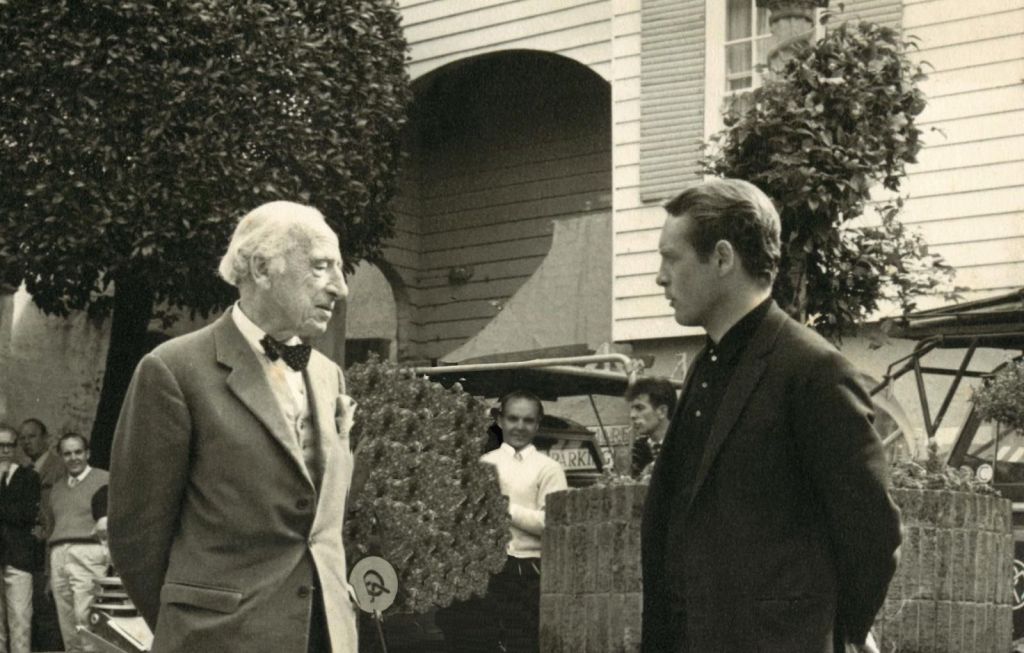
Portmeirion is a tourist destination and, over the years, was visited by those within the inner circle of the Beatles, including at least one of the band-members that I’m aware of – George Harrison – so it’s claimed, who’s reported to have spent his fiftieth birthday there in 1993 also taking part in some filmed interviews whilst there for the then-upcoming official TV documentary-series on the group, ‘The Beatles Anthology.’ So I’m led to understand, the screencap below is of him in Portmeirion whilst talking for the television special:
The most frequent visitor to Portmeirion of all the Beatles’ inner camp was the band’s manager, Brian Epstein. It’s said he had the use of his own cottage there, ‘Gate House.’ According to a so-called ‘location manager’ in the village, Meurig Jones, “Epstein was very fashion conscious and was always complaining to Clough that there wasn’t enough storage in his cottage for all his clothes when he came to stay in his cottage every summer. So, he designed and commissioned his own wardrobe in Gate House to house all his clothes.” It’s claimed he was staying there in the summer of 1966 when news was passed on to him that Beatles records were being burned in the US after John Lennon’s ‘more popular than Jesus’ comments were published in the American media. Staying with Epstein in Portmeirion during this was the band’s music-producer George Martin with his wife Judy.
On hearing of the Beatles burn-ins, Epstein packed his bags and left for the US in a bid for damage-control. According to Meurig Jones, McGoohan and his crew turned up in Portmeirion shortly afterwards, in September ’66, to begin shooting The Prisoner. Did Brian return to the village during the filming and ever get to meet Patrick? I don’t know if he did although he’d been visiting the place for many years prior to the actor’s decision to shoot there, so I’m led to understand. According to veteran music-biographer Ray Coleman – author of ‘Lennon – The Definitive Biography,’ ‘McCartney: Yesterday and Today,’ and ‘Brian Epstein: The Man Who Made The Beatles’ – Epstein had holidayed there in the days before the Beatles had secured a music-contract, so pre-1962. It’s reported that he and his family had taken holidays there in the early 1960s.
“For me… the Beatles are wonderful,” McGoohan said in an interview in 1968. “They go astonishingly far musically and, with their embryonic ‘reclusion,’ are really looking for new sounds. I always listen to their latest stuff and every time I get something new from it. They are the epitome of the age. They make a parody of everything we preach as adults but fail to practice… ‘All you need is love,’ just that – again and again. Then you realise that it is precisely love that we have the least of. They parody such ambiguities. They can’t do anything more, not even tell us how. There have been many people who have told us how to do it. Buddha was one, Christ was another. They told us, but the world lagged behind their visions. Responsibility of all for all seems to me to be the only answer, a protective modesty that is alien to the valuation or glorification of territory, wealth or material goods that are protected by those who have them.” The Beatles’ 1967 hit single ‘All You Need is Love’ is featured in the very last episode of The Prisoner, in the closing scenes. Someone who would benefit financially, I’m guessing, from the song’s inclusion in the show would be television mogul Lew Grade who was head of British TV network provider ‘ATV’ (‘Associated Television’) and ‘ITC Entertainment’ (‘Incorporated Television Company’) and who put his backing behind the making of the series and then who, in 1969, would buy – through ATV – control of the Lennon/McCartney song catalogue.
All You Need is Love plays out in some of the final scenes of the last episode of The Prisoner as chaos and violence ensues, just after Number 6 gets, finally, to see who Number 1 is, standing there masked and hooded with arms aloft…
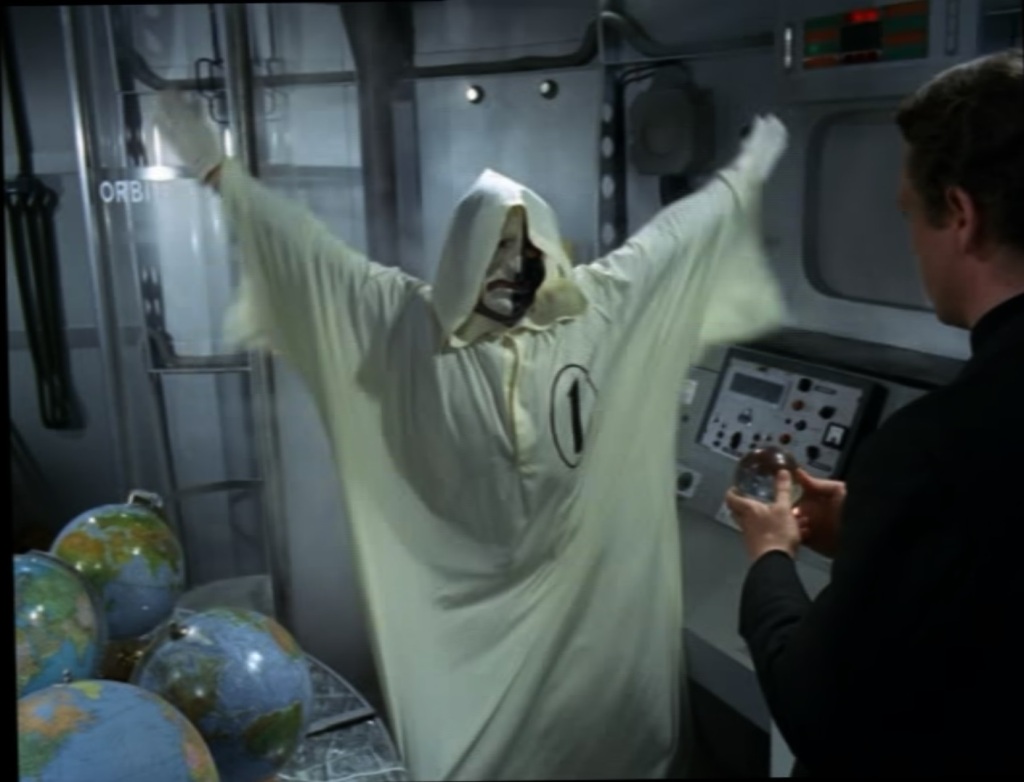
I can’t stop myself from being reminded of a similar pose, by a Beatle, a couple of years previously to that, from the album-cover of the soundtrack to Help! and the occult connotations that have been attached to that, namely to Aleister Crowley, from his work, ‘Liber O vel Manus et Sagittae Sub figura VI,’ which features black-hooded figures making arm-signs to the elements and deities…
The Help! cover:

The black hooded figures from Crowley’s ‘Liber O vel Manus et Sagittae Sub figura VI’:

So, here we have in the final episode of The Prisoner, what is one of the few to star Leo McKern who also starred in Help!, a hooded figure that, you might say, is reminiscent of what’s displayed on the soundtrack album of that said Beatles film. And, just mere minutes before the climactic, violent scenes to end The Prisoner are in motion, a song by that very same band is played as accompaniment. An interesting collection of connections there you might think, not merely down to what one might call “coincidence”(?). It could well be that I must examine these associations further to check how deep they might actually go and then report back for a future article, when I have some more facts and info at my disposal. Here though I’ll leave you with the song of the lyrics that I opened this article with, from Dhani Harrison’s album, the track, The Dancing Tree, featuring a sample from The Prisoner, from the previously-mentioned episode, ‘Free for All,’ in which Number 6 is fooled – mind-controlled, actually – into running for election, playing the campaign game, telling his would-be voters (as heard in the sample from the Harrison track):
“There are those who come in here and deny that we can supply every conceivable civilised amenity within our boundaries. You can enjoy yourselves and you will. You can partake of the most hazardous sports and you will. The price is cheap. All you have to do in exchange is give us information. You are then eligible for promotion to other and perhaps more attractive spheres. Where do you desire to go? What has been your dream? I can supply it, winter, spring, summer or fall they can be yours at any time. Apply to me and it will be easier and better.”
The entire series of The Prisoner is available to watch here:
https://archive.org/details/The_Prisoner
REFERENCE LINKS:
https://en.wikipedia.org/wiki/The_Prisoner
https://numbersixwasinnocent.blogspot.com/2010/09/mcgoohan-and-his-literature-ive-never.html
https://www.match-cut.de/tho/tallyho74.htm
http://www.meetthebeatlesforreal.com/2012/02/meeting-regular-guy-behind-those-ringo.html
‘The Beatles Anthology’ pg. 272
‘The Prisoner. A Complete Production Guide by Andrew Pixley.’
‘In My Mind’ documentary (2017)
‘Don’t Knock Yourself Out’ documentary
https://www.wired.com/2009/11/the-prisoner-an-all-star-appreciation/
https://archive.org/details/itwastwentyyears00tayl/mode/2up
https://en.wikipedia.org/wiki/Thenewno2
https://www.joolsholland.com/biography.htm
https://en.wikipedia.org/wiki/Horse_to_the_Water
https://en.wikipedia.org/wiki/Help!_(film)
https://www.match-cut.de/tho/tallyho27.htm
https://en.wikipedia.org/wiki/Danger_Man
https://archive.org/details/magical-mystery-tour_202106
https://en.wikipedia.org/wiki/List_of_The_Prisoner_episodes
https://www.imdb.com/name/nm0615569/
Click to access angelo%20muscat.pdf
https://www.iwm.org.uk/history/soe-the-secret-british-organisation-of-the-second-world-war
https://www.match-cut.de/tho/tallyho84.htm
https://www.dailypost.co.uk/whats-on/its-no-mystery-portmeirion-mark-12689505
https://www.walesonline.co.uk/whats-on/film-news/its-50-years-prisoner-made-10779083
https://www.bbc.co.uk/news/in-pictures-37232329
‘Brian Epstein. The Man Who Made The Beatles’ by Ray Coleman. Pgs. 84, 316-317
‘The Love You Make. An Insider’s Story of The Beatles’ – by Peter Brown and Steven Gaines. Pgs. 181 – 182)
‘1966. The year the Decade Exploded’ by Jon Savage. Pgs. 269
‘The Brian Epstein Story’ by Debbie Geller, edited by Anthony Wall. Pg. 127
‘Sound Pictures. The Life of Beatles Producer George Martin. The Later Years, 1966-2016’ by Kenneth Womack. Pgs. 110-111
https://www.the-paulmccartney-project.com/1969/09/atv-gains-majority-stake-in-northern-songs/

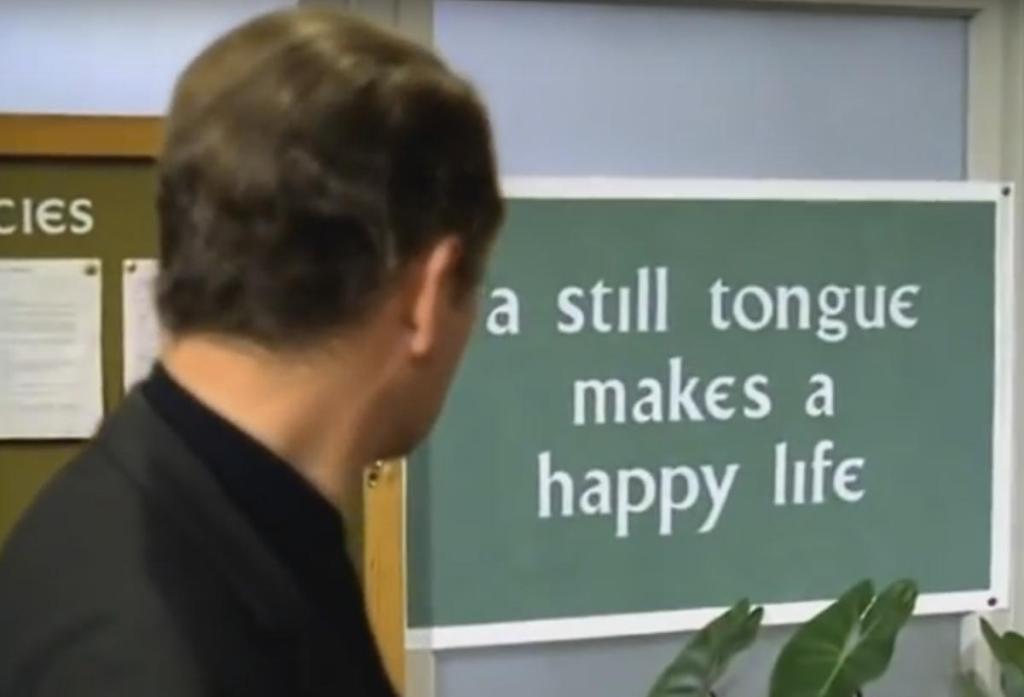

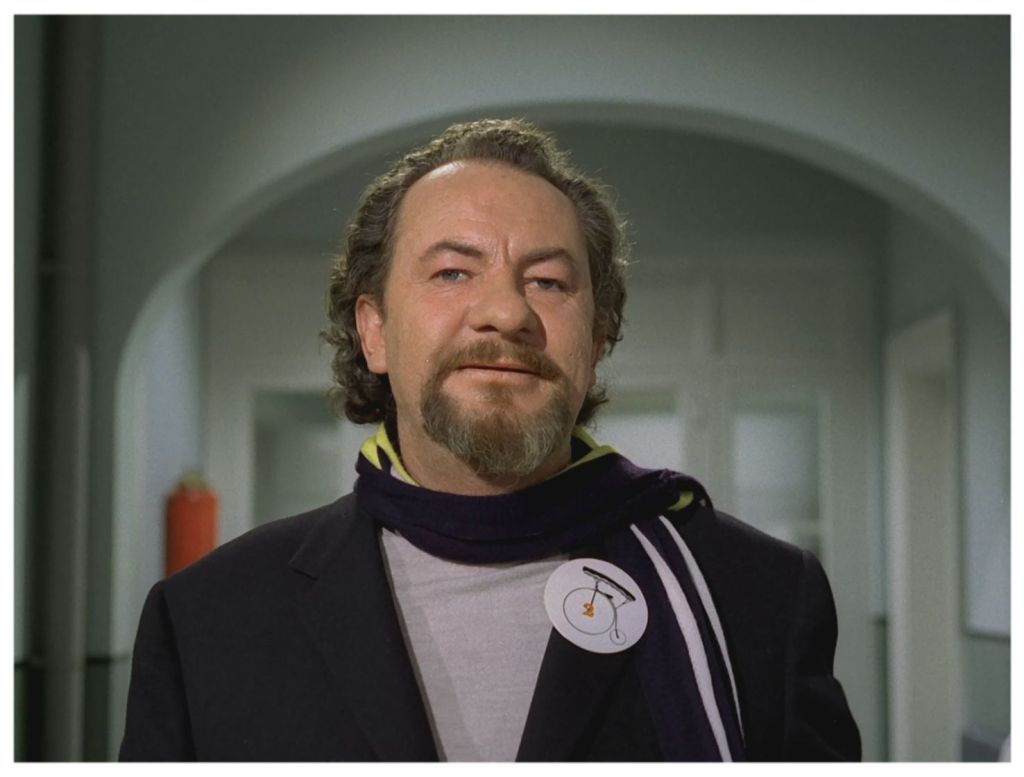
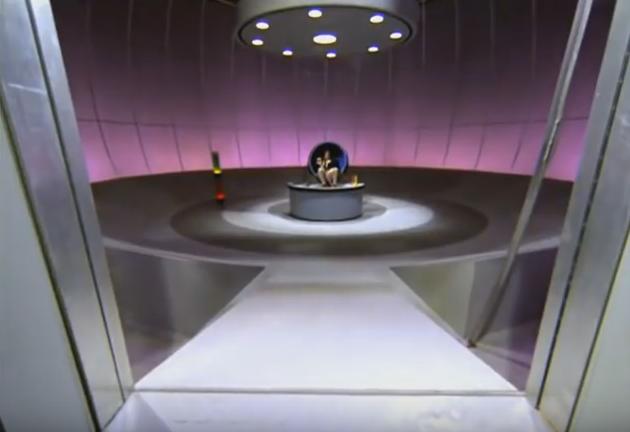
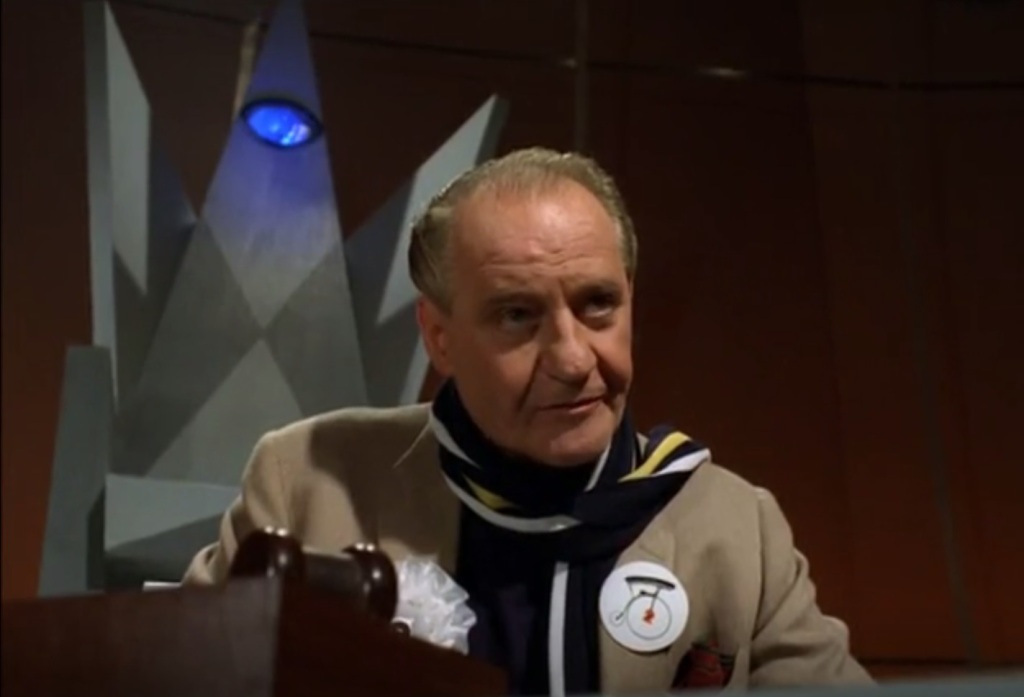
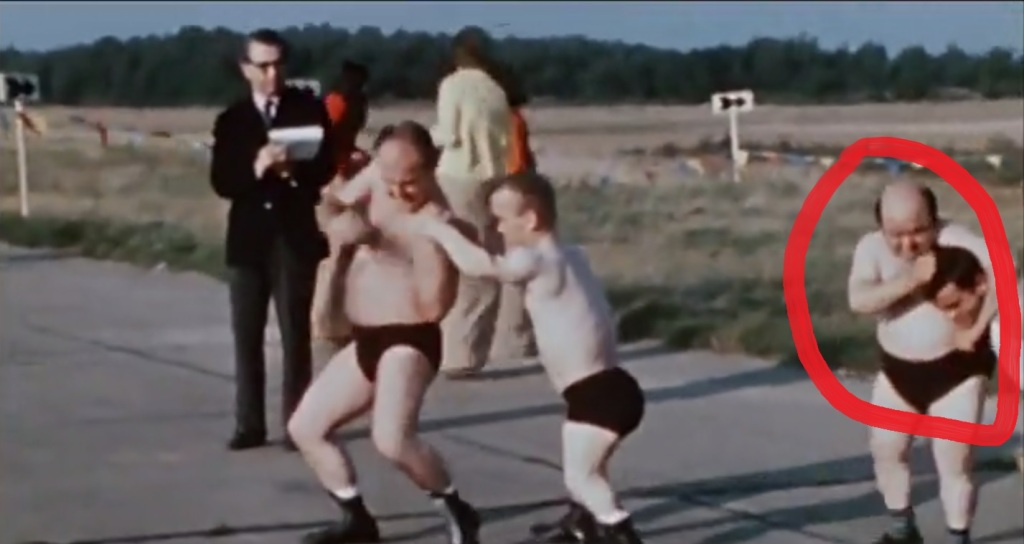





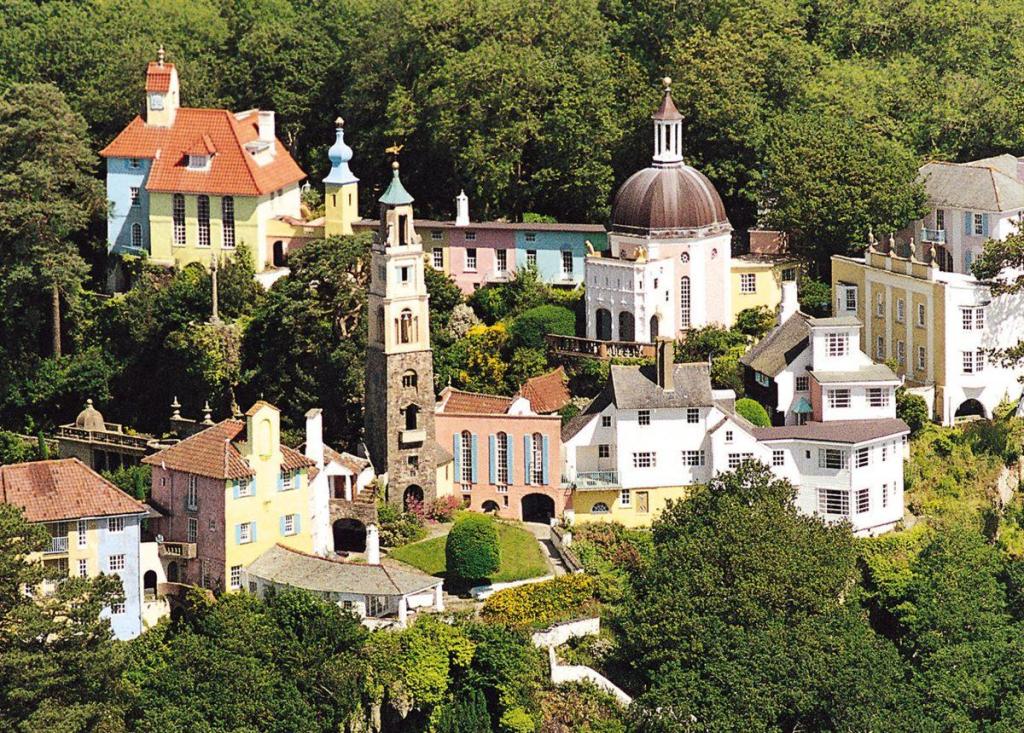

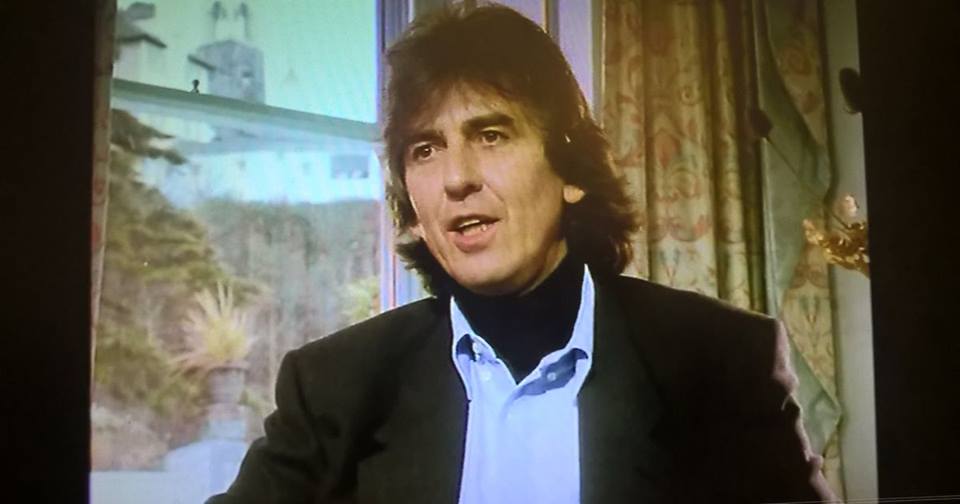
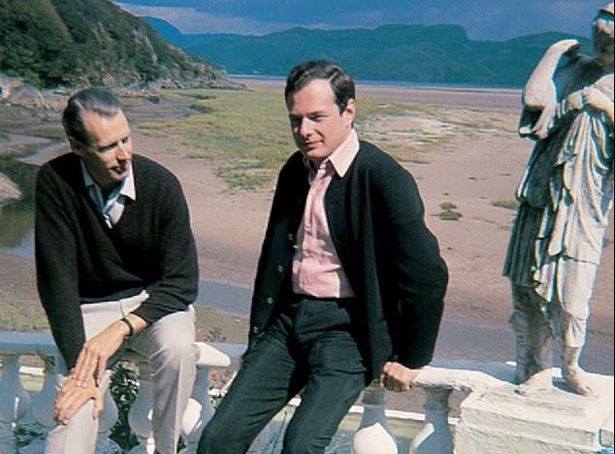
just brilliant. as always. When McGoohan says: “Imagine you are a scientist working on a highly secret project, for example a rocket to Mars.”, just replace Mars with Moon…Please, keep writing on this blog, your work is excellent and these kind of analyses are precious keys to understand
LikeLiked by 1 person
Thank you very much. I will do my utmost to deliver as best as I humanly can.
LikeLike